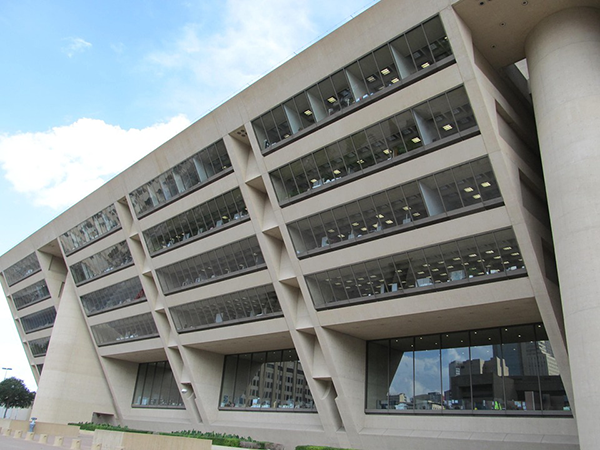
Dallas Can’t Keep Succeeding in Spite of Itself
By Phil Crone, Executive Officer, Dallas Builders Association
Dallas and surrounding areas have obviously experienced remarkable growth over the last few years, especially with commercial construction and multifamily. Residential development struggles to keep pace with builders primarily focusing on infill lots and small scale shared access projects. Dallas permitted just over 2,000 homes last year and is on track for a similar figure in 2019.
Dallas is also not exempt from the impact of rising housing costs. It is well documented that the city needs 20,000 affordable housing units. In the single-family context, new affordable housing needs to be priced around $250,000 to $350,000. Getting there is especially difficult in Dallas with land prices and, in some cases, neighborhood opposition to new affordable homes.
While some factors are out of our control, we need to take ownership of what we can. The stakes are too high not to. Homeownership remains the number one path to wealth creation for the American family, and the attainability of that dream here in DFW remains a primary impetus to job creation. However, for too many people homeownership is becoming less attainable, the drive to work is getting longer and the options for safe, quality homes at a reasonable price are getting fewer.
A major barrier to affordable housing in Dallas is the city itself. Development processes are not operating as efficiently and effectively as they should. Attempts to build attainable housing suffer disproportionately from these unforced errors.
This is not a new issue. Builders, developers and small business owners have bemoaned Dallas’s lack of transparency and predictability for years, yet Dallas has succeeded in spite of itself.
No place is this problem more evident than at the Oak Cliff Municipal Center, where a majority of these processes take place. There you will find a few familiar faces hanging around for hours each day. These people do not work for the city (some of them used to), but they have the expertise needed to navigate the tangled web that is the review and permitting process. “Dallas is different,” they say. I say, it’s time to change “Dallas is different” into “Dallas is better.”
That goal is infinitely more easily stated than achieved. First, we need the city council fully committed to improving performance and fully supportive of city staff’s efforts to increase predictability, transparency, efficiency and effectiveness. Past efforts failed to achieve this level of synergy and, accordingly, never made it beyond the planning/wishful thinking phase.
Focus should then turn to the pre-development phase of the review process. This requires extensive interdepartmental communication and coordination particularly with engineering, fire, water and building inspections.
The current landscape is littered with silos that need to be toppled by a combination of technology and a project management team empowered to provide comprehensive feedback on how to enhance pre-development functions. The group should espouse a culture of collaboration with the overall goal of ensuring that outcomes are reliable, efficient and well-communicated; responding appropriately when they are not.
The scale of workforce required to run an organization the size of the City of Dallas presents inherent communication and coordination challenges. As do nearly 1,000 planned development districts, each with their own set of zoning regulations.
Staff have to balance property owner desires with the public good while grappling with turnover and incomplete submittals from those not familiar with the city’s processes. They must do all of this without losing sight of their primary objective of protecting public safety.
All of these factors explain, but do not excuse the current situation. Residential developers in Dallas go into a project with no idea how long approvals will take or how expensive unexpected surprises will be along the way. This is not the case in many surrounding cities. Even ones with tough regulations.
Unlike many other cities, Dallas has a commitment to and policy for facilitating affordable and attainable homeownership. Successfully installing the comprehensive housing policy playbook first involves getting the fundamentals right. The proverbial “blocking and tackling” in the housing context are development processes that are predictable, transparent, efficient and effective.
To this point, Dallas may have succeeded in spite of itself, but it has not succeeded in providing sufficient housing options for those who need it most. With leadership from council, staff expertise and industry input we can get to the point where we say “Dallas is better.” When we do, thousands of working families will finally be able to say “Dallas is home.”